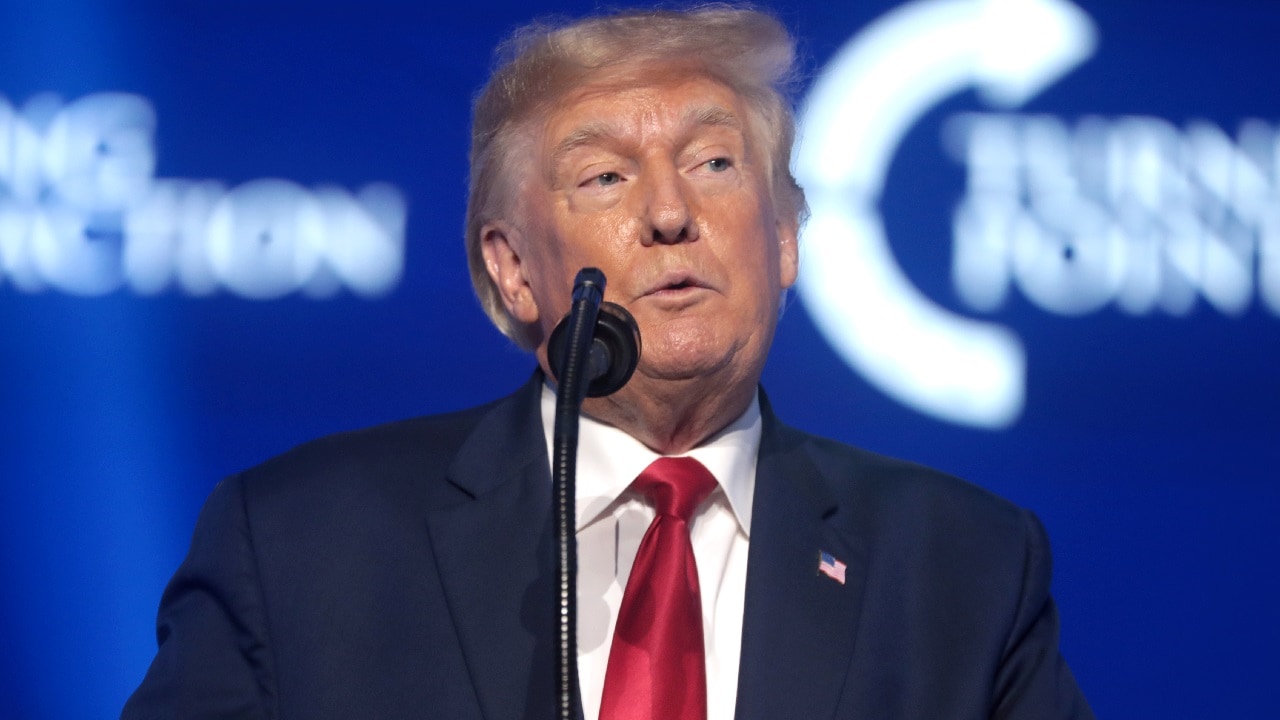In the last days of February, sitting President Joe Biden and former President Donald Trump made trips that contrasted their widely differing priorities in foreign policy. Though both were significant locations. President Biden went to Kyiv, the capital of Ukraine, to mark the one-year anniversary of Russia’s invasion of that country. Ex-president Trump, by contrast, went to East Palestine, Ohio, the site of a major train derailment and possible ecological contamination.
The contrast was pushed particularly by U.S. conservative media. The critique is that Democrats have lost touch with America’s small towns, especially those which are predominantly white and downscale. Instead, the Democrats cater to upper middle-class suburban voters, for whom because of their incomes and education, care more about foreign policy than those small towns.
Trump and allied media made this point by noting that Biden and other top figures from the administration did not go to East Palestine. And indeed, the optics were so poor that Secretary of Transportation Pete Buttigieg did finally visit. The entire issue has become politicized, as the story has increasingly become a media contest of appearances (even Erin Brockovich showed up). But this Trumpist critique misses how large, wealthy countries actually have complex, competing priorities.
Large Countries Can Do More than One Thing at a Time
A core part of Trump’s criticism turns on opportunity costs – the notion that U.S. assistance to Ukraine comes at the cost of remediating domestic problems. This is intuitively appealing, especially when a domestic disaster occurs.
Suddenly overseas commitments and foreign aid seem like help to undeserving foreigners rather than to deserving fellow citizens and taxpayers. When I previously worked for a U.S. congressman, this claim always played well with voters. Conservative media makes similar claims about the U.S. southern border.
At the very top of any U.S. administration, there is some credence to this claim. The president’s attention span is indeed limited, if only by human factors like mental exhaustion. Presidents inevitably focus on some things and ignore others. But once one moves down several layers into the U.S. bureaucracy, these types of personal or human constraints fade. Modern wealthy countries like the United States have large, capable, expertly staffed agencies that can tackle multiple issues concurrently. Since the beginning of an independent U.S. government, the country has simultaneously pursued foreign and domestic policies of rich complexity.
In the East Palestine case, the state government of Ohio, the U.S. Environmental Protection Agency, and the U.S. Department of Transportation all responded with reasonable alacrity. And all have made aggressive efforts to investigate the local effects of the spill. Multiple examinations have declared the water safe, and both the governor of Ohio and the head of the EPA have drunk the local water on camera to verify that.
The U.S. Doesn’t Give Much Foreign Aid
A second element of the trumpist critique is that aid to foreigners takes away help to Americans. Once again, there is some credence to this in a strict mathematical sense. Every dollar the U.S. spends on foreign assistance is indeed a dollar not spent at home. But this narrow statistical approach misses the wider story: that the U.S. gives very little in foreign aid, and what it does give is to favored clients like Israel.
Total U.S. foreign aid is just fifty-one billion dollars out of a national budget close to six trillion dollars and a national GDP close to twenty-five trillion dollars. Aid is rarely given in the form of an open check or stacks of cash. About a quarter of U.S. foreign aid is military assistance. Another chunk is dues and obligations to international organizations like the International Monetary Fund, to which all countries, not just the U.S., contribute. The remainder tends to focus on issues like AIDS, disaster relief, and grants for children and mothers. That could indeed be cut, but these small humanitarian programs serve a national interest in softening the edges of American hard power. Cultivating American soft power is in America’s interest.
It’s Really About the 2024 Presidential Election
Trump’s visit to East Palestine was short and focused more on Biden’s apparent disinterest than aid to the local people. As many noted, the Trump administration pursued a deregulatory agenda which included laxer train safety. Trump’s specific changes did not lead to this derailment, but the Democrats can just as credibly argue that their domestic investment efforts, which Republicans oppose, serve the interests of American small towns in need of infrastructural improvements. In short, neither camp’s effort to politicize the derailment is really about East Palestine; it is positioning for 2024.
More broadly though, the Trump critique is shallow. The U.S. government does a lot of things, including rail regulation. Inevitably, some of that will go poorly, and the government responded with reasonable speed even if Biden himself did not visit.
Presidential travel is not a particularly good metric for effective government, no matter its TV appeal. Similarly, minute amounts of foreign aid are germane only in a very attenuated sense. The real takeaway, rather, is Biden’s traditional internationalism – his support for U.S. partnerships overseas, regardless of the ebbs and flows of U.S. domestic politics – contrasted with Trump’s willingness to describe that as a cost to American domestic interests.
Expert Biography
Dr. Robert E. Kelly (@Robert_E_Kelly; RoberEdwinKelly.com) is a professor in the Department of Political Science at Pusan National University and 19FortyFive Contributing Editor.

